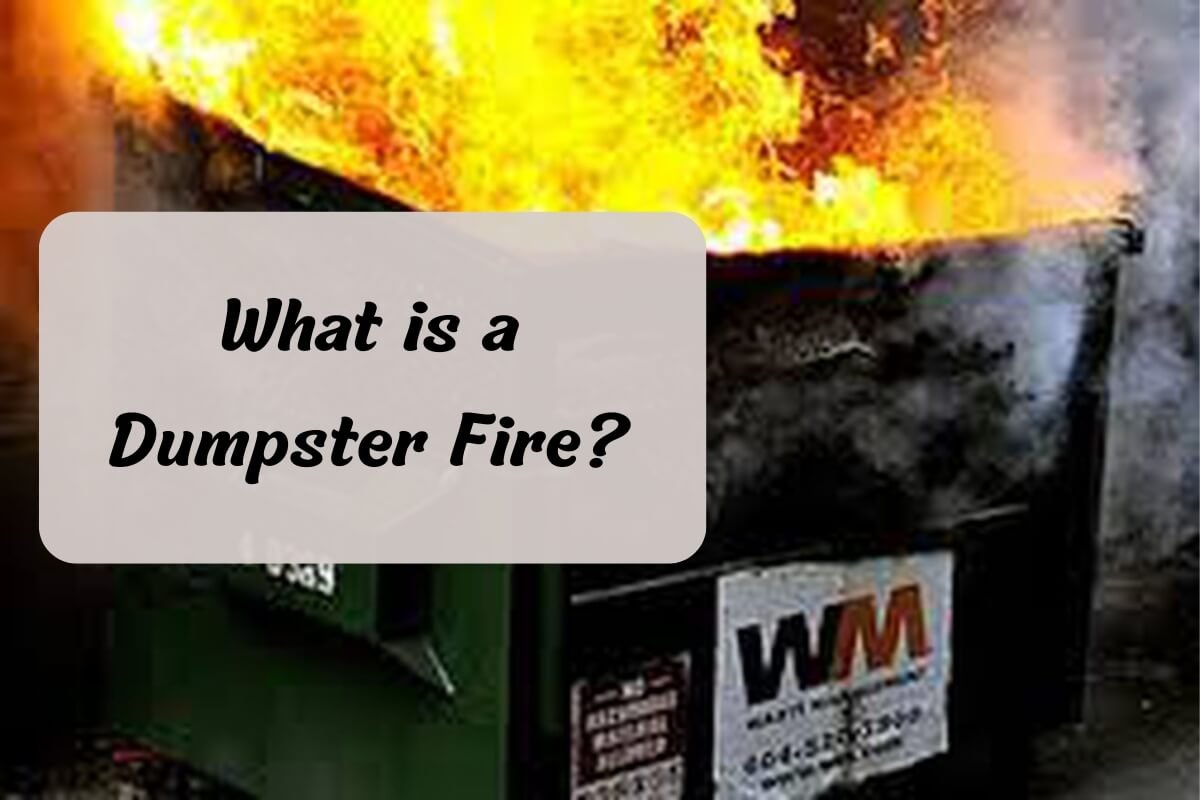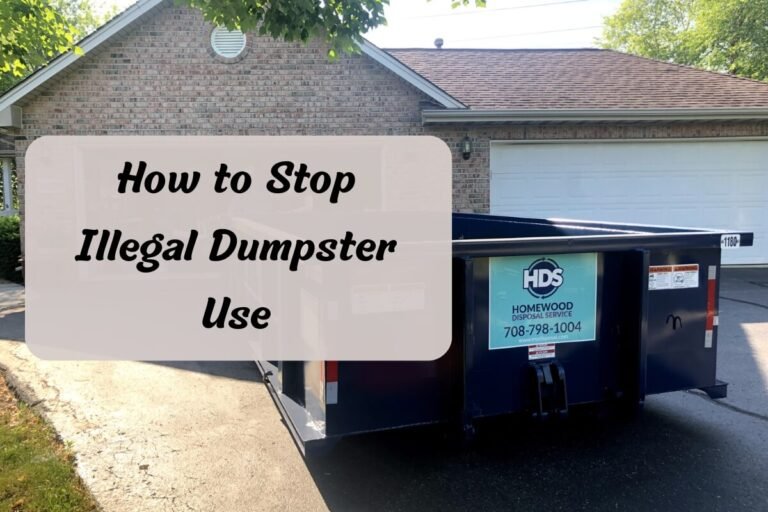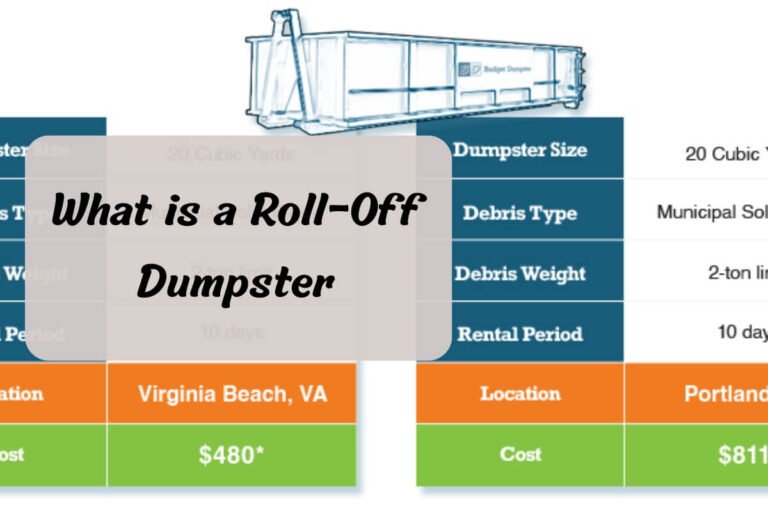What is a Dumpster Fire? Meaning, Origin, and Usage of This Vivid Metaphor

Have you ever encountered a situation that was a complete disaster or utterly mismanaged? If so, you might have described it as a “dumpster fire” – a colorful and now commonplace metaphor in American English. This post will explore the meaning, origin, and proper usage of this evocative phrase, as well as its rise to linguistic prominence.
The literal meaning of “dumpster fire” refers to an actual fire occurring in a large trash bin, often caused by the improper disposal of flammable materials like paper, cardboard, chemicals, or batteries. However, the focus here will be on the figurative “dumpster fire” metaphor used to vividly depict a calamitous, chaotic, or catastrophically mishandled situation.
This thorough guide will cover:
- The origins and early metaphorical usage of “dumpster fire”
- How it became popularized to describe disastrous contexts like sports and politics
- When “dumpster fire” was officially added to the dictionary
- Analysis of what makes this phrase so memorable and fitting
- Proper ways to use the “dumpster fire” metaphor (and when not to)
- The potential future trajectory of this informal term
The Rise of the “Dumpster Fire” Metaphor
While the phrase has literal origins referring to trash bin fires, the figurative usage of “dumpster fire” as a metaphor for a chaotic situation emerged in the early 2000s. One of the earliest known examples is from 2003, when a critic described a remake of The Texas Chainsaw Massacre as “the cinematic equivalent of a dumpster fire.”
However, the term remained relatively obscure until around 2010 when it started gaining traction in the sports world. Commentators and fans increasingly used “dumpster fire” to mock teams going through catastrophic losing streaks or seasons plagued by dysfunction and turmoil.
“Dumpster Fire” Goes Mainstream in 2016
The “dumpster fire” metaphor became widely popular in 2016, especially during that year’s U.S. presidential election, which was described as chaotic.
Pundits, journalists, and the general public increasingly turned to the vivid phrase to encapsulate the vitriol, scandals, conspiracy theories, and general dumpster fire-like conditions surrounding the election cycle. Google searches for “dumpster fire” spiked when Donald Trump announced his presidential bid in October 2015.
The 2016 election seemed to be the catalyst that propelled “dumpster fire” from niche slang into common parlance. It even won the American Dialect Society’s “Word of the Year” in 2017, beating out the trendy term “woke.”
Official Dictionary Entry for “Dumpster Fire”
In March 2018, Merriam-Webster officially enshrined “dumpster fire” in its dictionary, defining it as “an utterly calamitous or mismanaged situation or occurrence.”
The editors noted the term was included due to it rapidly entering widespread usage with a “removal of linguistic white gloves” – meaning writers and speakers began using it without explaining the metaphor, assuming audiences understood its vivid meaning.
Peter Sokolowski, an editor at Merriam-Webster, commented: “If a word is used by some people, it should be in a dictionary for all people.” He noted modern memes and viral terms can make the jump to official dictionary entries faster than ever before.
Why “Dumpster Fire” Works So Well as a Metaphor
Part of what makes “dumpster fire” such an effective and memorable metaphor is its perfect blend of the mundane and the calamitous.
A dumpster is an ordinary, ubiquitous object – but a fire raging inside one conjures up imagery of an unexpected, dangerous, and out-of-control disaster unfolding in a mundane setting. This paradoxical juxtaposition is part of what makes the phrase stick in one’s mind.
Linguistically, the punchy two-word phrase also has an appealing “verbal intensity” from the repeated hard consonant sounds. As one journalist put it, the consonants give “dumpster fire” an appealing natural “goofiness” similar to made-up words by Dr. Seuss.
Additionally, the metaphor effectively captures the shared experience of witnessing an actual dumpster fire – it quickly becomes an unsafe, smoldering, foul situation that may prove difficult to fully extinguish or clean up after.
Essentially, “dumpster fire” adeptly accomplishes what all great metaphors do – it paints a devastatingly clear picture using just two vivid, evocative words.
Using “Dumpster Fire” Appropriately
The phrase “dumpster fire” should be used thoughtfully, considering the situation and audience.
The metaphor is best deployed in informal contexts to add a punch of vivid imagery when describing a situation, event, or undertaking that has devolved into complete chaos, disaster, or mismanagement. It can be used in a mocking or hyperbolic way, or simply to concisely capture the essence of a debacle.
For example:
- “After all the bad press and resignation of the CEO, the company’s public image has turned into a dumpster fire.”
- “My apartment move was a total dumpster fire – the movers lost half my stuff.”
- “Did you see the game last night? Our defense was an absolute dumpster fire!”
However, the metaphor likely doesn’t work as well in very formal or high-stakes contexts where nuanced language is required. Describing a failed nuclear disarmament negotiation as “a dumpster fire” would probably be seen as too flippant or crass.
There are also plenty of situations a “dumpster fire” metaphor doesn’t quite capture accurately – it implies a high degree of visibility, rapid deterioration, and loss of control. A more protracted, behind-the-scenes, or slowburn disaster may not be a true “dumpster fire.”
What’s Next for the “Dumpster Fire” Metaphor?
Given its rapid rise from obscure slang to dictionary-enshrined status, will “dumpster fire” remain a linguistic fixture for years to come? Or is it destined for eventual overuse and extinction like so many other fleeting viral catchphrases?
It’s hard to say for certain, but many language experts believe “dumpster fire” has key characteristics that may give it staying power:
- It’s a simple, striking, and easy-to-understand metaphor
- It can apply broadly to all kinds of disasters and failures
- It fills a useful lexical gap by adding vivid, informal wording otherwise lacking
That said, the sheer ubiquity of “dumpster fire” around peak usage in 2016-2017 led some journalists to proclaim they were already tiring of it. The overexposure and culture of ironic detachment could eventually see it fall out of favor with younger generations.
Only time will tell if “dumpster fire” remains a self-perpetuating blaze in the modern lexicon or if it’s destined to eventually burn itself out. But in summing up the dumpster fire-like year of 2018, NPR declared it a “phrase for our time” we “wouldn’t want to live without.”
For now, the evocative metaphor seems to be here to stay as a reliably pithy way to capture any situation, event, or undertaking that has descended into chaos, disaster, or an irredeemable flaming heap. Just remember to use it judiciously and let the vivid imagery speak for itself!






